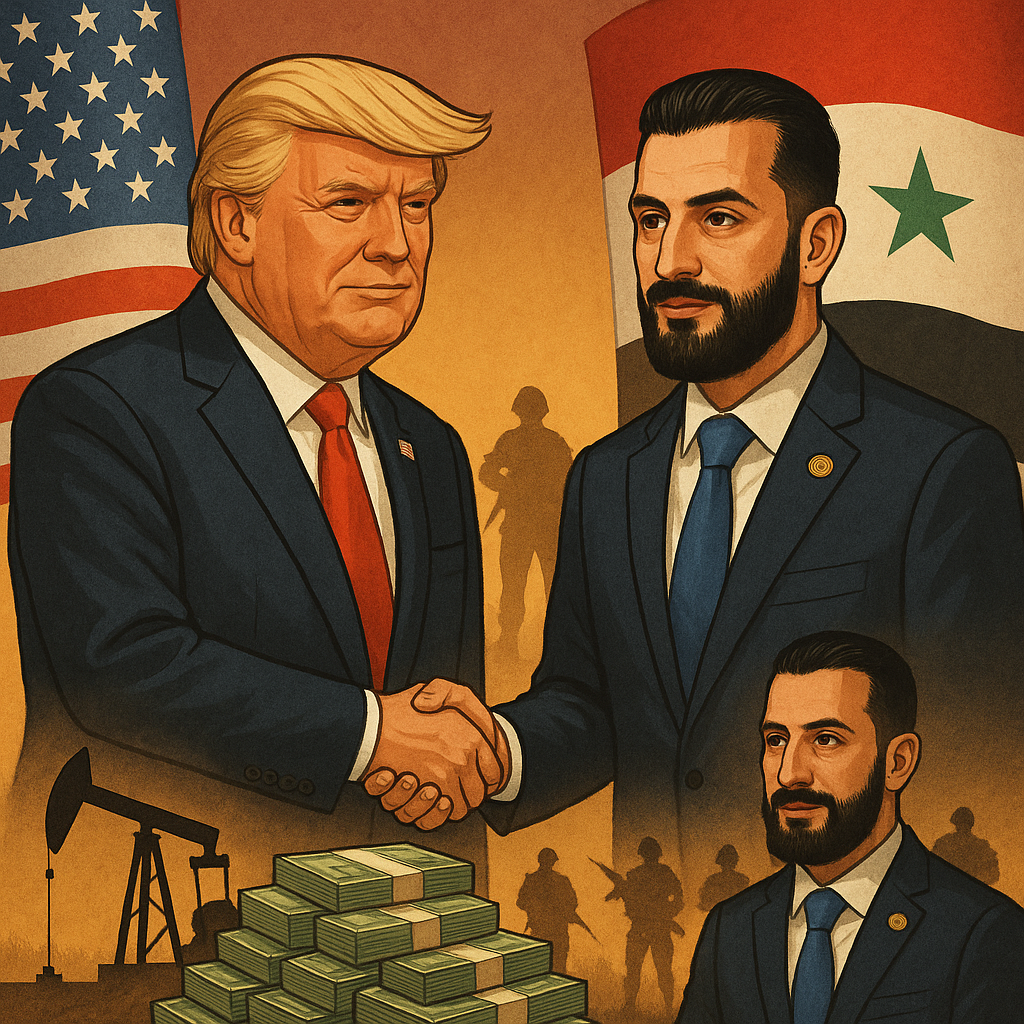In a recent Foreign Policy article, the contrasting international treatment of Syria’s new leadership and Afghanistan’s Taliban government is explored, despite both having roots in Islamist movements and assuming power through military means. The article examines why Ahmed al-Sharaa, Syria’s transitional president and former HTS leader, is being welcomed by Western powers while the Taliban remains globally isolated.
From Pariah to Partner
Sharaa, once on a U.S. wanted list with a $10 million bounty, is now receiving praise from global leaders and standing beside French President Emmanuel Macron, while his foreign minister raises Syria’s new flag at the UN. Meanwhile, the Taliban’s supreme leader, Haibatullah Akhundzada, remains hidden in Kandahar, and Afghanistan has been re-added to the U.S. travel ban list—even as Syria was removed.
The article argues that recognition today hinges less on legal legitimacy and territorial control, and more on history, strategic relevance, and Western interests. Syria, situated at a geopolitical crossroads bordering Israel, Turkey, and the Mediterranean, is simply more vital to global powers than landlocked Afghanistan.
Two Trajectories
While both regimes emerged from Islamist movements, Sharaa has rebranded himself—swapping jihadi fatigues for suits, engaging with minorities, relaxing conservative policies, and welcoming returning refugees. In contrast, the Taliban has doubled down on its hardline vision, banning girls from school and restricting women from public life.
Sharaa’s perceived moderation and Syria’s strategic importance—especially its proximity to Israel, its Kurdish population, and its history with Iran—make it a higher Western priority. Syria also poses less of a direct historical link to 9/11, unlike the Taliban, whose brand remains tied to that global trauma.
The Syrian diaspora has largely supported engaging the new government, seeing it as an improvement over Assad. Conversely, the Afghan diaspora—especially Tajiks and former officials—has lobbied heavily against Taliban recognition, fearing a return to oppression.
Western policymakers, particularly under Trump, appear to be testing whether early engagement with Damascus might moderate Syria’s new rulers and prevent the emergence of terror havens. This stands in contrast to the continued isolation of the Taliban, which many believe has only hardened its rule.
A Strategic Bet
The piece concludes that while both Sharaa and the Taliban gained power through similar means, only Syria is being seriously reintegrated. This reflects a blunt reality: the West deems Syria more strategically essential. Whether early recognition will lead to a stable, inclusive post-war Syria—or replicate past mistakes—is the test ahead. The Taliban, the article suggests, might learn from Sharaa’s pragmatic approach, while Washington might consider applying the same logic more evenly across its foreign policy.


